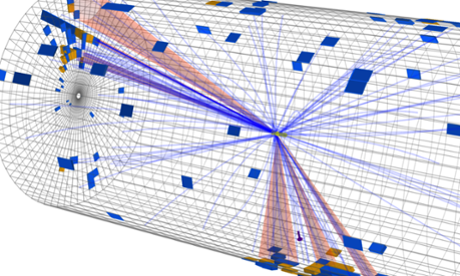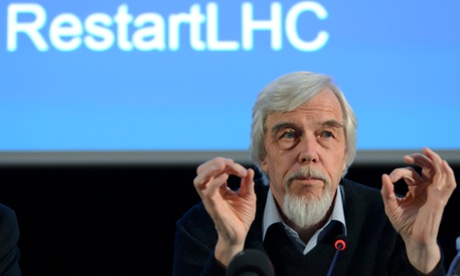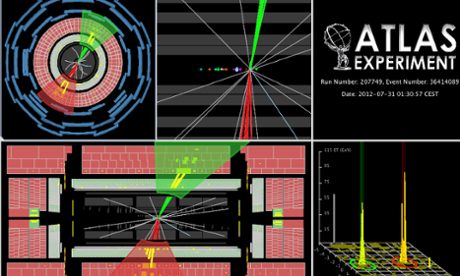The Large Hadron Collider (LHC) at the European Organization for Nuclear Research CERN in Geneva is the world’s largest and most powerful particle accelerator and possibly the most complex scientific instrument ever built. The LHC has just begun its second three-year run, at the record-breaking collision energy of 13 TeV. About 10,000 scientists from 60 countries will search for new phenomena beyond the Standard Model of particle physics, in pursuit of a simple, beautiful and all-encompassing theory of nature.
The sheer complexity of the LHC experiments, and of LHC data acquisition and processing, poses tremendous challenges and affects the way knowledge is acquired. Since any analysis and interpretation of LHC data involves theoretical models and computer simulations, can one still consider such experimental results indisputable facts of nature? And given the strong theoretical bias in data selection, can the LHC explore unknown territory, or are we limited to search for the “known unknowns”? And what if we look in the wrong places? Maybe our idea of a simple and yet all-encompassing is flawed, and new physics could show up in some unexpected way? Could one not perform searches for new physics at the LHC in a model-independent way?
The relationship between computer simulations and experiment, between theories and data, and the role of models in modern particle physics are scientific issues. But they are also key questions of philosophy of science, and they have been debated at the recent interdisciplinary workshop on ‘Models, simulations and data at LHC’, organised by Michela Massimi at Edinburgh University.
Jon Butterworth from UCL set the stage for the workshop by outlining the quantity and nature of the data acquired by the LHC. Jon discussed the use of simulations - both of the detectors and of the unknown or known underlying physics - in defining and making measurements. Given the importance of simulations and theory in LHC data taking and analysis, should we still consider the LHC an exploratory experiment? Koray Karaca from Wuppertal argued that even though the physics program of the LHC and the set-up of the experiments is not independent of theory, there is a significant element of exploration at the LHC, an exploration that is strategy – rather than theory – driven.
The challenge of dealing with “really big data” and computer simulations at the LHC has been addressed by Margaret Morrison from the University of Toronto. Margaret argued that the enormous amount of data collected and analysed at the LHC has transformed the notion of validation for computer simulations and introduced methodological changes which raise various new epistemological issues.
I have been exploring so-called simplified models for new physics searches at the LHC. Such models focus on specific experimental signatures that could reveal physics beyond the Standard Model, and they characterise these signatures with a minimal set of new particles and interactions in a more model-independent way. Simplified models are thus some kind of mediator between experiment and theory, and they allow physicists to (learn to!) explore the space of viable theories and experimental signatures. However, the use of simplified models also raises various epistemological questions: How do we choose the right simplified models? How do simplified models connect to theory? And what does a simplified model actually explain and how?
There have been many tedious and futile discussions about the value of philosophy for modern science. I find it much more interesting and fruitful to ask if and in what way modern science can advance philosophy. The complexity, the new challenges and the new methods that arise in modern science in general - and at the LHC in particular - raise a number of questions that concern core issues of philosophy of science: what are the methods of acquiring knowledge, what is the role of models, and how does the intricate relationship between theory, computer simulations and experimental data work? The LHC has been built for fundamental physics, but it will also challenge and advance the philosophy, sociology and history of science!
Michael Krämer is a theoretical particle physicist at the RWTH Aachen University and member of a research collaboration on the Epistemology of the LHC. He is grateful to Margaret Morrison for many enlightening discussions on models, football and whisky. You can follow Krämer on Twitter at @mikraemer








